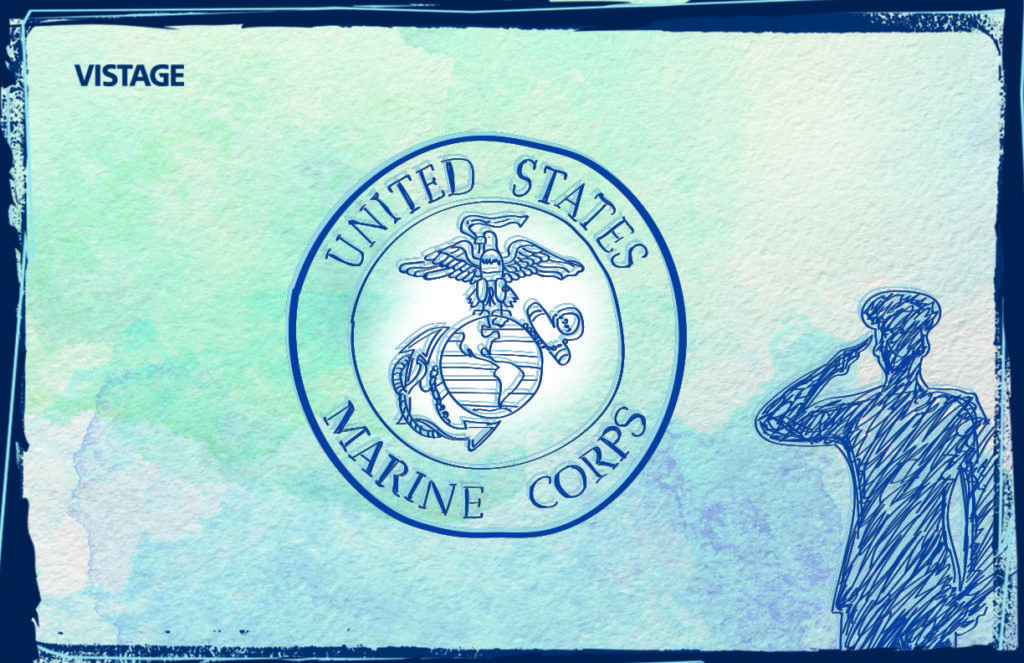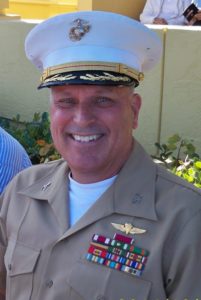Lessons in leadership from the U.S. Marine Corps

Colonel Mike Malone of the United States Marine Corps had an epiphany as he was watching a team of sailors get a ship underway and leave port. Malone was a young PFC serving in Okinawa and watched, fascinated, as the crew of sailors methodically performed the myriad tasks associated with preparing the magnificent vessel for launch. “It was phenomenal,” he said. “They worked together silently, carefully and with flawless coordination and economy of movement. It was a huge eye opener for me.”
The lesson Malone internalized, the lesson he carries with him even today, is this: Teamwork is the key to accomplishment. And a team is only as effective as its leader. In his 41 years as a Marine, Malone worked with his share of leaders.
“When I was a private we had a really bad leader and we all hated him,” he recalled. “But toward the end of my career, the chairman of the joint chiefs of staff wrote my last fitness report (performance evaluation) and he was the kind of leader anyone would follow. That man knew how to make his teams work.”
Respect is key
The military is notorious for its relentless formal training, but Malone found that the informal training had a more lasting, valuable impact. “In the military you are constantly exposed to ineffective versus effective leadership styles,” he said. “The sub context of all of it is respect. It’s a matter of rank; you have to respect those ranked higher than you, but sometimes that respect is earned, and that makes all the difference.”
Malone did two years of service then joined the reserves. He was recalled to active duty twice. In 2003 he commanded an active duty battalion, then in 2005, he was Chief of Staff, 1st Marine Logistics Group in Camp Pendleton. In between, he worked as a civilian in the private sector. “The point is that I took my military leadership skills and training to the business world. And I took my corporate experience with me back to the military.” 
He found that the leadership lessons he had internalized from his military and corporate experiences provided a resilient, adaptable template for success.
As a chief of staff, Malone had a large number of career marines working for him. “You guys are better at supply, maintenance, engineering and transportation than I will ever be,” he said to them. “But I know how to run a company, and if you tell me what you need to get your job done, I will see that you get it.”
Following through on that promise, he found, breeds trust and respect — two things leaders need to foster in order to build an efficient team.
“As a CEO and as a commanding officer, your job is to make sure your people know what is expected of them,” Malone said. “Your job is to make sure they are all talking together and on the same page. They need to know that they can trust you to do what you say you will.”
Mike Malone finished his service in 2011 as the senior Reserve Officer at I Marine Expeditionary Forces, Camp Pendleton. He achieved the rank of Colonel and is particularly impressed with the quality of the young Marines he sees serving our country today.
Mike began as a Vistage Chair in 2005, and currently chairs two Chief Executive Groups and a Trusted Advisor Group. He also co-chairs a Key Executive Group with Charles Furman. Thank you for your service, Mike.
More lessons in leadership from the United States Armed Forces:
Stephen Johnson of the U.S. Navy![]() talks about how a CEO commands the morale of his team.
talks about how a CEO commands the morale of his team.
Bob Slate’s personal essay ![]() memorializes his former U.S. Coast Guard commander in the Antarctic.
memorializes his former U.S. Coast Guard commander in the Antarctic.
Randy Miller’s experiences![]() with positive and negative leadership in the U.S. Air Force shaped his leadership mantra.
with positive and negative leadership in the U.S. Air Force shaped his leadership mantra.
Richard Carr recalls![]() a three-star general whose example he has followed through his own career.
a three-star general whose example he has followed through his own career.

